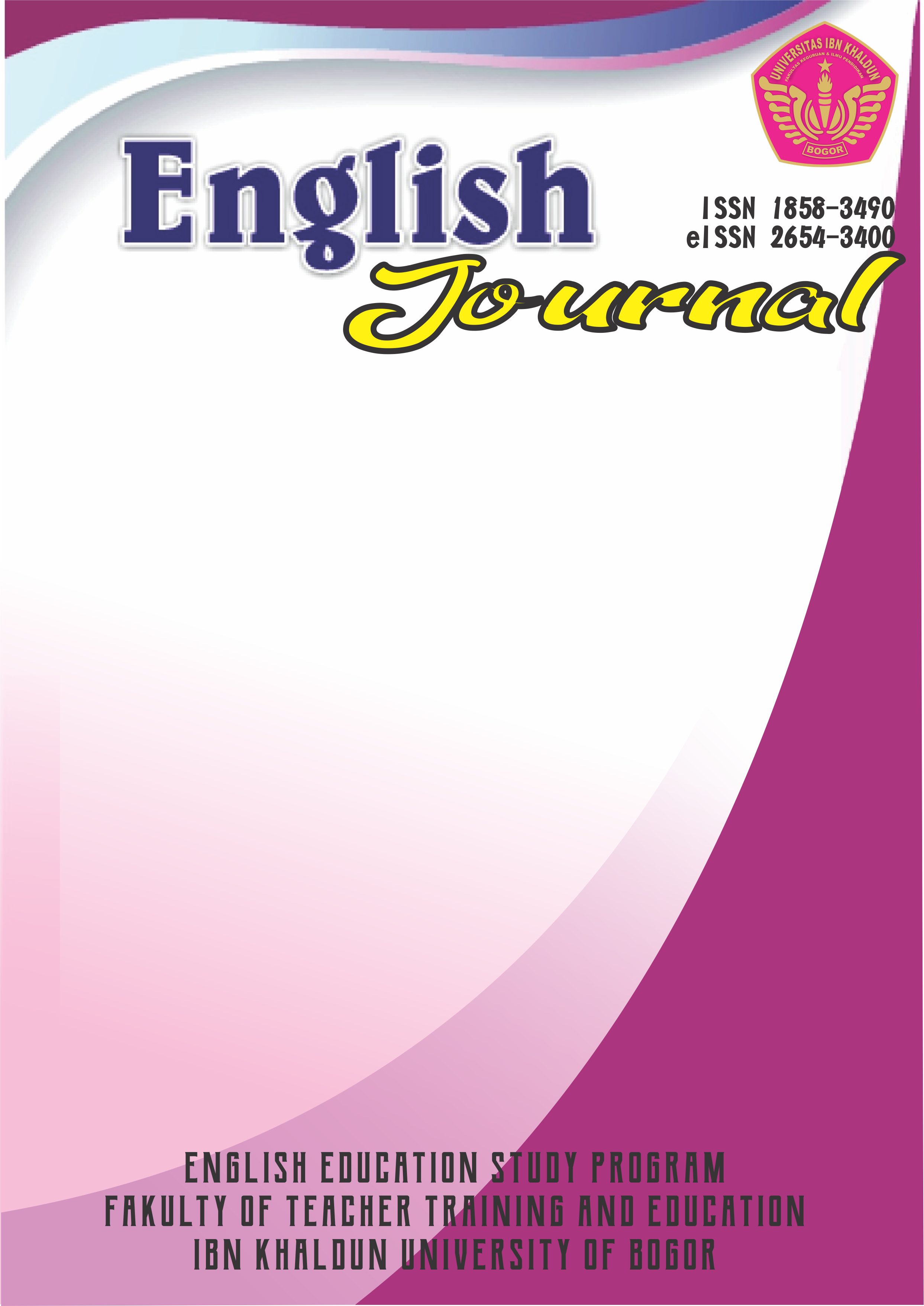STUDENTS' PERCEPTIONS TOWARD THE USE OF MOBILE LEARNING IN LEARNING ENGLISH
DOI:
https://doi.org/10.32832/english.v13i1.3776Abstrak
This study aims at investigating students' perceptions toward the use of mobile learning (m-learning) in learning English and of the effects itself. This study uses qualitative as a framework for analyzing and collecting the data. The data were obtained from questionnaire and interview. The data were analyzed through transcribing, coding and interpreting. This study reveals that the majority of students have positive perceptions on the use of m-learning; students may easily access useful material by using mobile devices; m-learning help students increase flexibility of learning inside and outside classroom because they can easily get learning materials anywhere and anytime. Most of the students perceive that the use of m-learning can improve their English skills and enable them to independent learning.Referensi
Al-Emran., Hatem., M.E. (2016). Investigating attitudes toward the use of Mobile Learning in higher education. Journal of Mobile Learning.
Ally, M. (2009). Mobile Learning. Canada.
Almaiah, Mohammed A. (2014). Inverstigating students's perception on Mobile Learning services. Journal of Mobile Learning. University Malaysia Terangganu. Malaysia.
Ary, D., Jacobs, L.C., & Razavieh, A. (1996). Introduction to research in education research: competencies for analysis and applications (10th edition). New York, NY: Pearson.
Balmer, F. (2004). Students' attitudes and perceptions toward the effectiveness of Mobile Learning in king Saud university, Saudi Arabia. The Turkish Online Journal of Educational Technology – TOJET, ISSN: 1303-6521, 8 (2), pp. 111-119, 2009.
Cohen, L., Manion, L., & Morrison, K. (2007). Research methods in education (Sixth edition). New York: Routledge.
Departemen of Education. (2008). Evaluation and selection of learning resources: A guide. Canada: Prince Edward Island.
Gay, L. R., & Mills, G. E., Airasian, P.W. (2012). Qualitative research. Tenth edition. USA. Pearson Education.
Hasan, M., & Hoon, T.B. (2012). Podcast applications in language learning: A review of recent studies. Journal of language learning. Canadian Center of Science and Education.
Hong, K. (2003). Students' attitudes toward the use of the internet for learning : A study at a University in Malaysia. Journal of Learning.
Kavaliauskiene, G. (2008). Podcasting: A tool for improving listening skills. The Journal of Teaching English with Technology (TEwT), 8(4). Retrieved fromhttp://www.tewtjournal.org/VOLn8/ISSUEn4/AnWORDnFROMnAnTECHIE.pdf.
Iqbal, S. (2017). Mobile phone usage and students' perception toward M-Learning. Journal of students' perceptions. Pakistan.
Kraut, R. (2013). Policy guidlines for Mobile Learning. France: UNESCO.
Lebeau, S. (2005). Questionnaire design. France: UNESCO.
Margono, M. (2002). Mobile educational features in authoring tools for personalised tutoring. computers & education. Journal of Mobile Learning. 44(1), 53-68. http://dx.doi.org/10.1016/j.compedu.2003.12.020
McQuiggan, S. (2005). Mobile Learning. USA.
Robi, G. and Yerushalmy, M. (2016). Mobile application for Mobile Learning. In Proceedings of the international conferenceon cognition and exploratory learning in the Digital Age (CELDA), September 7-9, Algarve, Portugal.
Sidhu, G., K. (2003). International. Litelature in the language classroom: Seeing through the eyes of learners. Journal of Teaching. Petaling Jaya.
Tzu, H. (2015). Preliminary study on teachers' use of the iPad in bachelor of education program at a private university in Malaysia. Tech Trends, 58(2),
-19. http://dx.doi.org/10.1007/s11528-014-0732-y.
Xuen, H., & Qiaocho Liu. (2014). Using Mobile Apps to facilitate English learning for collage students in China. University of Broas. Journal of Mobile Learning.
Yousef Mehdipour. (2013). Mobile learning for education benefits and Challenges. Journal of Mobile Learning. China.

















1.png)




